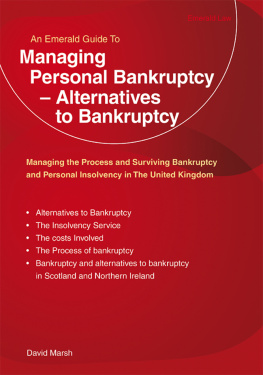Carl Axel Helmer Key - Revival: European Bankruptcy and Emigration (1924)
Here you can read online Carl Axel Helmer Key - Revival: European Bankruptcy and Emigration (1924) full text of the book (entire story) in english for free. Download pdf and epub, get meaning, cover and reviews about this ebook. year: 2018, publisher: Routledge, genre: Politics. Description of the work, (preface) as well as reviews are available. Best literature library LitArk.com created for fans of good reading and offers a wide selection of genres:
Romance novel
Science fiction
Adventure
Detective
Science
History
Home and family
Prose
Art
Politics
Computer
Non-fiction
Religion
Business
Children
Humor
Choose a favorite category and find really read worthwhile books. Enjoy immersion in the world of imagination, feel the emotions of the characters or learn something new for yourself, make an fascinating discovery.
- Book:Revival: European Bankruptcy and Emigration (1924)
- Author:
- Publisher:Routledge
- Genre:
- Year:2018
- Rating:4 / 5
- Favourites:Add to favourites
- Your mark:
- 80
- 1
- 2
- 3
- 4
- 5
Revival: European Bankruptcy and Emigration (1924): summary, description and annotation
We offer to read an annotation, description, summary or preface (depends on what the author of the book "Revival: European Bankruptcy and Emigration (1924)" wrote himself). If you haven't found the necessary information about the book — write in the comments, we will try to find it.
Revival: European Bankruptcy and Emigration (1924) — read online for free the complete book (whole text) full work
Below is the text of the book, divided by pages. System saving the place of the last page read, allows you to conveniently read the book "Revival: European Bankruptcy and Emigration (1924)" online for free, without having to search again every time where you left off. Put a bookmark, and you can go to the page where you finished reading at any time.
Font size:
Interval:
Bookmark:
HELMER KEY, D.Ph.

2 Park Square, Milton Park, Abingdon, Oxon, OX14 4RN
and by Routledge
711 Third Avenue, New York, NY 10017
The publisher has gone to great lengths to ensure the quality of this reprint but points out that some imperfections in the original copies may be apparent.
The publisher has made every effort to trace copyright holders and welcomes correspondence from those they have been unable to contact.
A Library of Congress record exists under ISBN: 24012916
ISBN 13: 978-1-315-12398-1 (ebk)
HELMER KEY, D.Ph.
36 ESSEX STREET W.C.
LONDON
Editor of the Svenska Dagbladet
January, 1924
THE BANKRUPTCY OF THE RECONSTRUCTION POLICY
Font size:
Interval:
Bookmark:
Similar books «Revival: European Bankruptcy and Emigration (1924)»
Look at similar books to Revival: European Bankruptcy and Emigration (1924). We have selected literature similar in name and meaning in the hope of providing readers with more options to find new, interesting, not yet read works.
Discussion, reviews of the book Revival: European Bankruptcy and Emigration (1924) and just readers' own opinions. Leave your comments, write what you think about the work, its meaning or the main characters. Specify what exactly you liked and what you didn't like, and why you think so.










